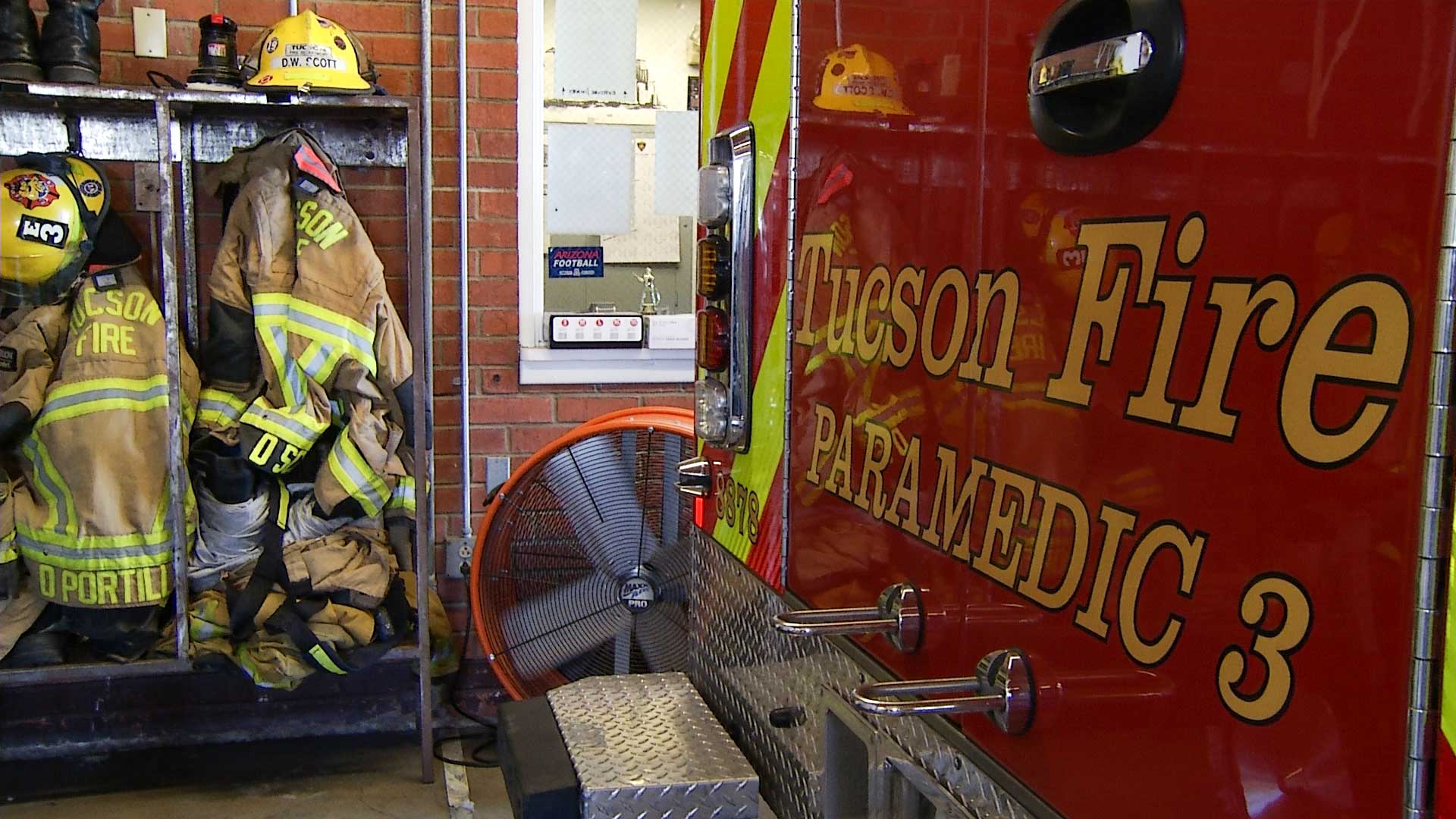 A Tucson Fire Department vehicle and gear.
A Tucson Fire Department vehicle and gear.
Tucson city leaders have mapped out an investment strategy to save taxpayers from losing money while paying into a retirement fund for public safety officers.
Tucson, like most Arizona municipalities, pays into the state pension fund that provides retirement benefits for police officers and firefighters. Those payments can be costly for the city.
“Annually, the City of Tucson pays right now about $75 million this fiscal year. That will grow over the next 20 years, we’re paying $250 million annually for that pension plan. If you think of that in context, that’s how much we bring in in sales tax annually,” explained Joyce Garland, Tucson’s Chief Financial Officer.
Those payments will total about $1 billion over the next 20 years, crippling the city budget.
To solve the problem, in the simplest terms, Tucson Mayor Regina Romero and the City Council approved a plan to sell bonds to pay down the city’s portion of the debt to the pension fund.
Getting that debt off the books allows the city to provide services, besides the police and fire pension fund.
“We put in millions of dollars every year from our General Fund that usually pays for other services, for parks and recreation, for road repair, for other services to our community from there. So, the more we put into our pension payments from our General Fund the less services we can provide to Tucsonans,” said Romero.
Selling bonds takes the pressure of the annual payment off the General Fund but it also carries a cost because the city has to pay interest to whomever buys the bonds.
Tucson CFO Garland said usually taking on debt to pay a debt would not make sense, but this was a different situation because the money from the bond sale will be invested before it is used to make the annual payment to the pension fund.
“When we saw that we could actually go to the market and get less than 2% debt when I can earn 6-7% we thought ok this is something we really have to look at,” said Garland.
Interest rates on bonds are low due to the effects of COVID-19 on the economy. It is the same reason mortgage rates are low right now, leading many people to refinance.
Currently, if every pension eligible police officer or firefighter were to retire tomorrow the city would only have enough money to pay 30-40% of them. The bond sale will give Tucson the ability to pay 70% of the public service retirees their month checks if they all retired tomorrow.
Financial experts consider that is a healthy ratio because not every member of the pension group will retire tomorrow.
The move made by Tucson sets up the city’s financial future.
“This is one of the most important financial steps that mayor and council could have taken in a generation,” said Romero.
In 2016, the Arizona Legislature made changes to the public safety pension fund that were coupled with a constitutional change approved by voters. Those moves were made to keep the larger state fund from putting the state in financial trouble down the road.
“The first thing we needed to do was stop digging the hole, so they closed that system and created a new Tier 3 which is much more certain, much more stable in how it’s going to be funded going forward,” said Mike Townsend who oversees the pension fund for the state.
The hole will take the state decades to fill, according to Townsend. He also pointed out that the benefits for those who are in the pension fund cannot be changed.
“It’s been tested in the courts. Once that benefit is given and promised to those first responders, we cannot cut it. It’s in the Constitution we cannot diminish that benefit,” said Townsend.
Tucson is not the only local government in Arizona to try to come up with ways to solve the pension fund shortfall, but the eyes of the financial world are on Tucson to see if this plan is the solution many are looking for.

By submitting your comments, you hereby give AZPM the right to post your comments and potentially use them in any other form of media operated by this institution.